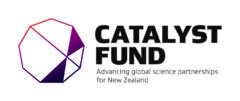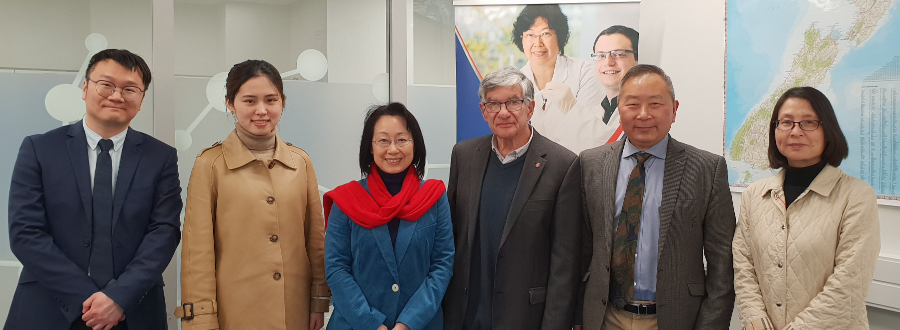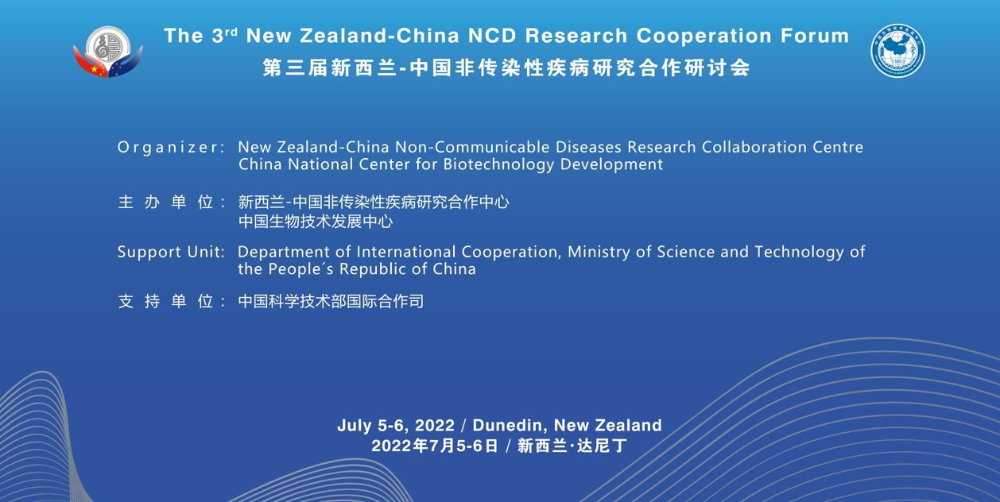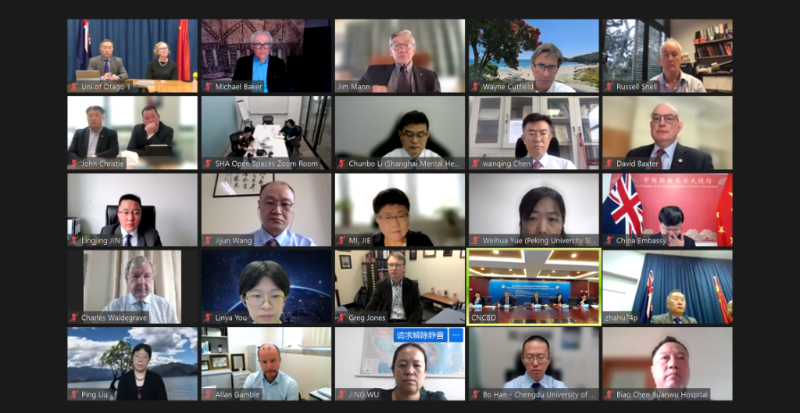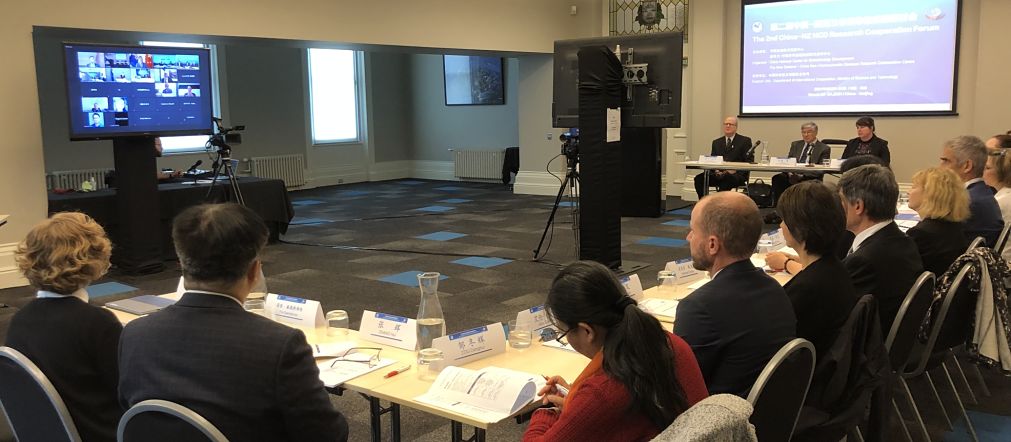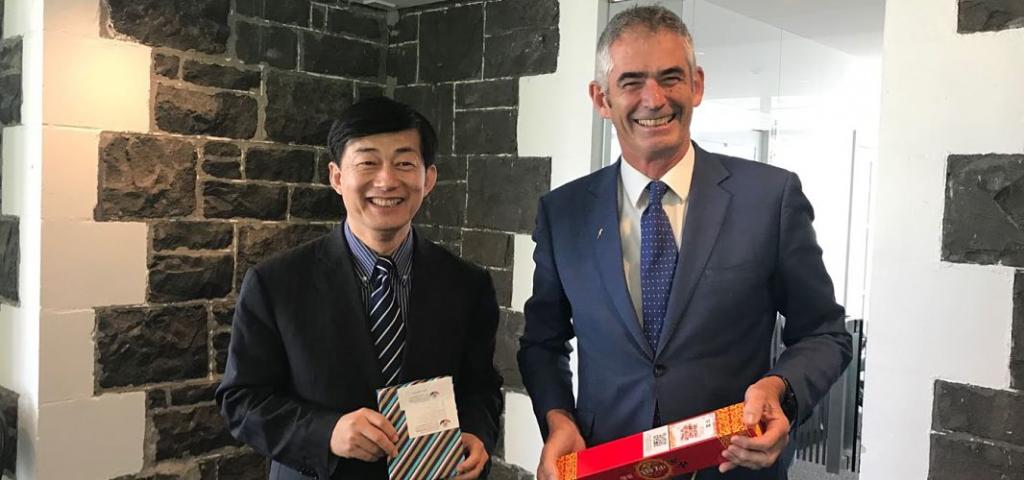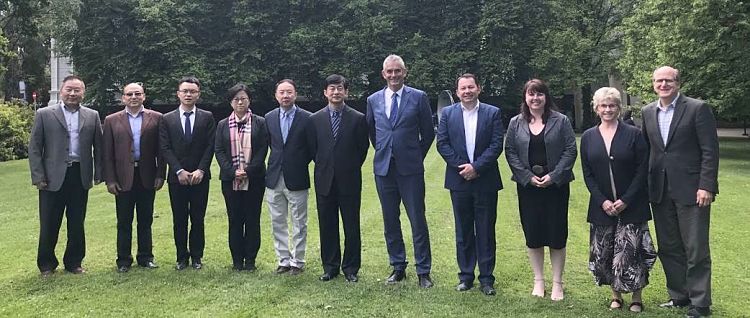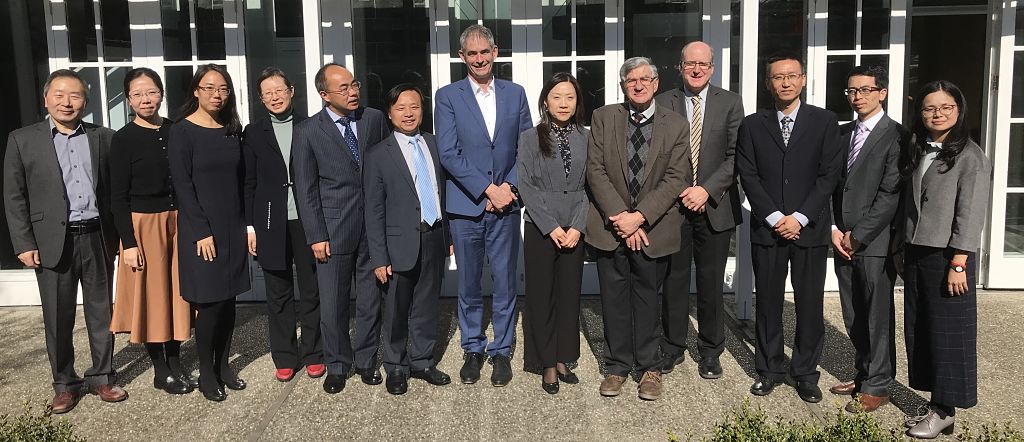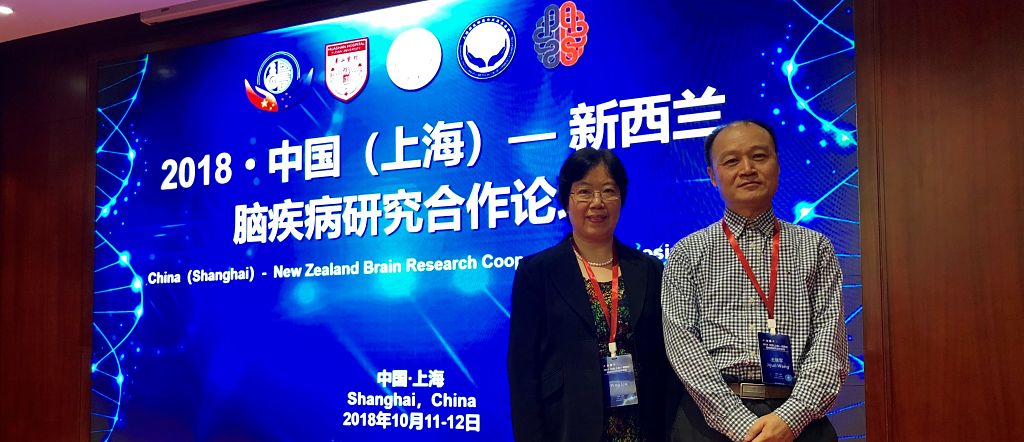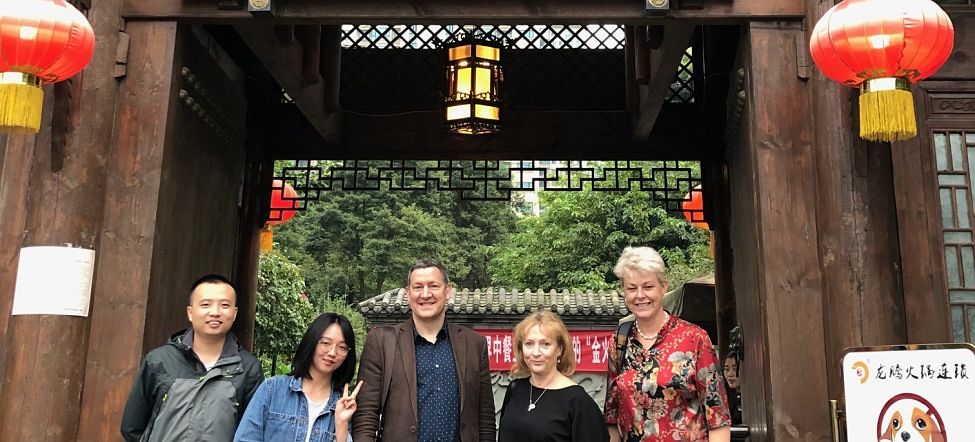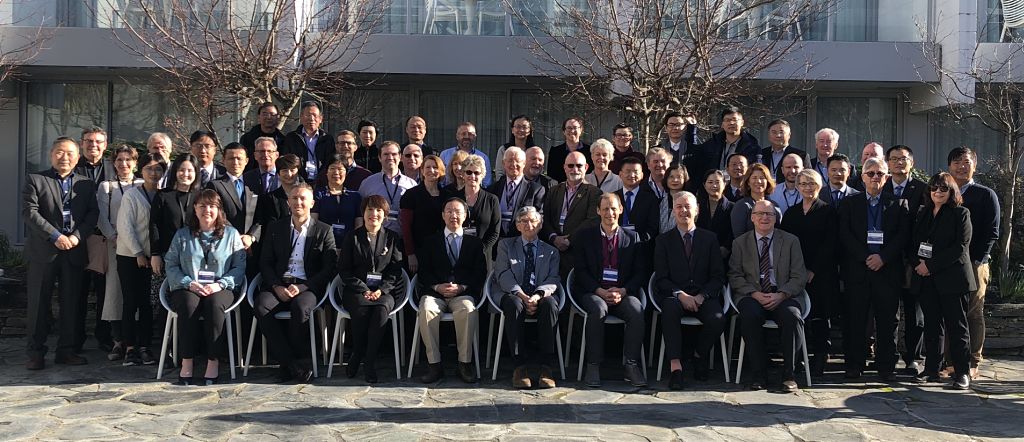Established links were strengthened at the 3rd NZ-China Non-Communicable Diseases Research Cooperation Forum, with calls made to increase forum frequency and expand the number of research teams invited to hear the world-class presentations from Aotearoa and Chinese researchers.
Congratulations flowed in to the organisers after the 5-6 July 2022 forum, with participants agreeing it was the most exciting forum yet. The event’s main objective was to identify priority joint research programmes. Some 70 researchers took part, with 35 speakers from both countries.
This year’s focus was on New Zealand’s health-related National Science Challenges (NSCs): A Better Start, Healthier Lives and Ageing Well. Each ‘Challenge’ had its own e-discussion ‘room’ in which presentations from Chinese and New Zealand researchers highlighted NCDs of major concern or interest to both nations. These include childhood obesity, diabetes, cardiovascular, cancer, Traditional Medicine (TCM) and Brain Science. Themes around big data, mental health and wellness promotion wove through many of the presentations.
The keynote speakers were University of Otago Public Health Professor Michael Baker a member of the Ministry of Health’s Covid-19 Technical Advisory Group, and Professor Yu Wang – the former director general of the Chinese Center for Disease Control and Prevention and current president of the Chinese Foundation for Hepatitis Prevention and Control. Both spoke about the COVID-19 era and how if you have an NCD such as diabetes, cancer, heart disease, obesity or high blood pressure, you have a higher risk of getting a severe COVID-19 infection, with the risks increasing with every subsequent COVID-19 infection./p>
The forum was hosted by the New Zealand–China Non-Communicable Diseases Research Collaboration Centre (NCD CRCC) whose Director, Professor Sir Jim Mann, was also co-chair of the forum’s Healthier Lives room. He says, “Our biggest area of discussion was the epidemic of diabetes in NZ and China. We saw a lot of slides and statistics that were just mind-blowing. I hope a number of collaborations will be extended and new ones begun, especially regarding diabetes, where we haven’t had any collaboration so far, and in reduction of NCDs through lifestyle change.”
Chair of the ‘A Better Start’ room, Professor Wayne Cutfield, said the greatest opportunities in child health and wellbeing were in mental health apps to assist in the management of mental health problems before they became mental health disorders. He also acknowledged how every person in the forum had been hugely disrupted by COVID-19 issues beyond anyone’s control. International collaborative research stalled, with everyone stuck in their countries.
Professor Cutfield says, “Hopefully that will change. What was very clear in this forum was the world class quality of the presentations. Given the quality of the science, we should expand the forum to include more researchers and research teams in future forums.”
The ‘A Better Start’ room discussion reflected all the others in that it featured new areas of discussion, in this case it was childhood obesity. The head of the University of Otago’s Department of Medicine and Director of the Edgar Centre for Diabetes and Obesity Research, Professor Rachael Taylor, spoking about ‘Improving healthy weight in children: where to from here?’. This was echoed by vice president of the Children’s Hospital of Zhejiang University School of Medicine, Professor Jun-Fen Fu, in her presentation on ‘Obesity and diabetes in children’.
The Chair of the Ageing Well room was Professor David Baxter, Co-Director of Ageing Well. Prof Baxter opened the Forum with an overview about what ageing looks like in Aotearoa New Zealand and how an organisation like Ageing Well helps all Kiwis to age well.
“Ageing is a universal process, yet people experience it differently all over the world. It was helpful to be able to come together and discuss the latest in innovative research. The forum provided a great opportunity for researchers in New Zealand and China to learn about each other’s research and find ways in which we can collaborate,” said Professor Baxter.
Co-Chair of the Ageing Well room, Xuanwu Hospital Capital Medical University Professor Biau Chen, agreed and said the forum underlined how both countries faced similar issues around ageing.
Professor Chen gave examples of the new technologies he uses, such as a virtual hospital to manage Parkinson’s patients so different doctors from different institutions can confer. He also described a project screening the elderly for dementia-related cognitive deficit, using technology to intervene early and help them live better. Another research project uses digital technologies to help people with motor dysfunction and neurological issues through monitoring, assessment and prevention.
He said presentations about Chinese projects like these were reciprocated, using the example of Auckland University of Technology Associate Professor, Rita Krishnamurthi, who told the Ageing Well room about using wellness coaching for chronic diseases such as stroke, and the benefits this can provide.
Co-Chair of the Brain Science group, University of Otago, Professor Tim Anderson reported that many of the group members have existing collaborations and are old friends whose work together was disrupted by COVID-19.
Professor Anderson says, “The forum re-established those connections. Our room’s presentations ranged from single brain cell studies to large human cohorts. We talked about Parkinson’s, Alzheimer’s, schizophrenia, and healthy ageing. Huashan Hospital’s Professor Jian Wang informed us about AI digital monitoring. This type of research is in its early stages in NZ, but great strides are being made in China. This is clearly a potential source of collaboration.”
University of Otago School of Pharmacy Senior Lecturer, Dr Allan Gamble, was co-Chair of a Cancer/Diabetes/TCM room. He says, “This was a fantastic opportunity to meet like-minded scientists. We identified a lot of potential collaborations and refreshed on-going collaborations such as that between myself and Chengdu University of Traditional Chinese Medicine (TCM) Professor Bo Han. The attendees had good discussions about how to use diet to prevent or reduce the advance of type 2 diabetes. Now, it’s important to look for and act upon funding opportunities to visit each other and further enhance collaboration.”
Issues that hamper collaboration such as difficulties in scheduling regular meetings and transportation of research samples were also discussed.
During the opening ceremony, both the Department of International Cooperation, Ministry of Science and Technology, China (MoST) Deputy Director General, Jie Xu, and the Ministry of Business, Innovation and Employment (MBIE) Science and Innovation Counsellor China, Clinton Watson, said that while New Zealand and China may have different perspectives on some issues, there is plenty of opportunity build on already strong ties of collaboration in areas such as science and innovation.
Professor Mann adds, “Clearly, some of the established forum links are operating well, most obviously with Traditional Chinese Medicine and our agreement with Chengdu University of Traditional Chinese Medicine (CDU TCM).”
In 2023 a cohort of international students who have already completed one and a half years of study at CDU TCM, China, will come to Dunedin for years two and three of Otago’s School of Pharmacy Bachelor of Pharmaceutical Science degree.
The NCD CRCC is an initiative of the New Zealand Government to coordinate and maximise collaboration opportunities with China across the priority themes of non-communicable diseases.
The NCD CRCC thanked the contribution of Mr Watson, Mr Jie Xu and The People’s Republic of China New Zealand Embassy Minister Counsellor, Genhua Wang, for their invaluable support and help in the forum’s organisation.(Previous forums took place in 2019 and 2021.)
For details about the forum programme and speaker biographies see:
For more information contact:
Fia Jephson Sandstrom
Email: ncd@crcc.nz
